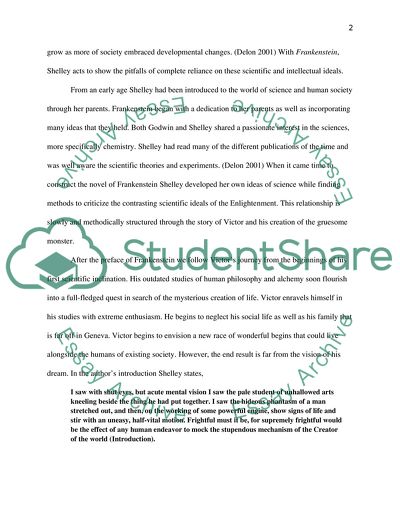Frankenstein as a Criticism of the Enlightenment and Romantic Movements Term Paper Example | Topics and Well Written Essays - 1500 words. https://studentshare.org/literature/1739291-frankenstein
Frankenstein As a Criticism of the Enlightenment and Romantic Movements Term Paper Example | Topics and Well Written Essays - 1500 Words. https://studentshare.org/literature/1739291-frankenstein.


